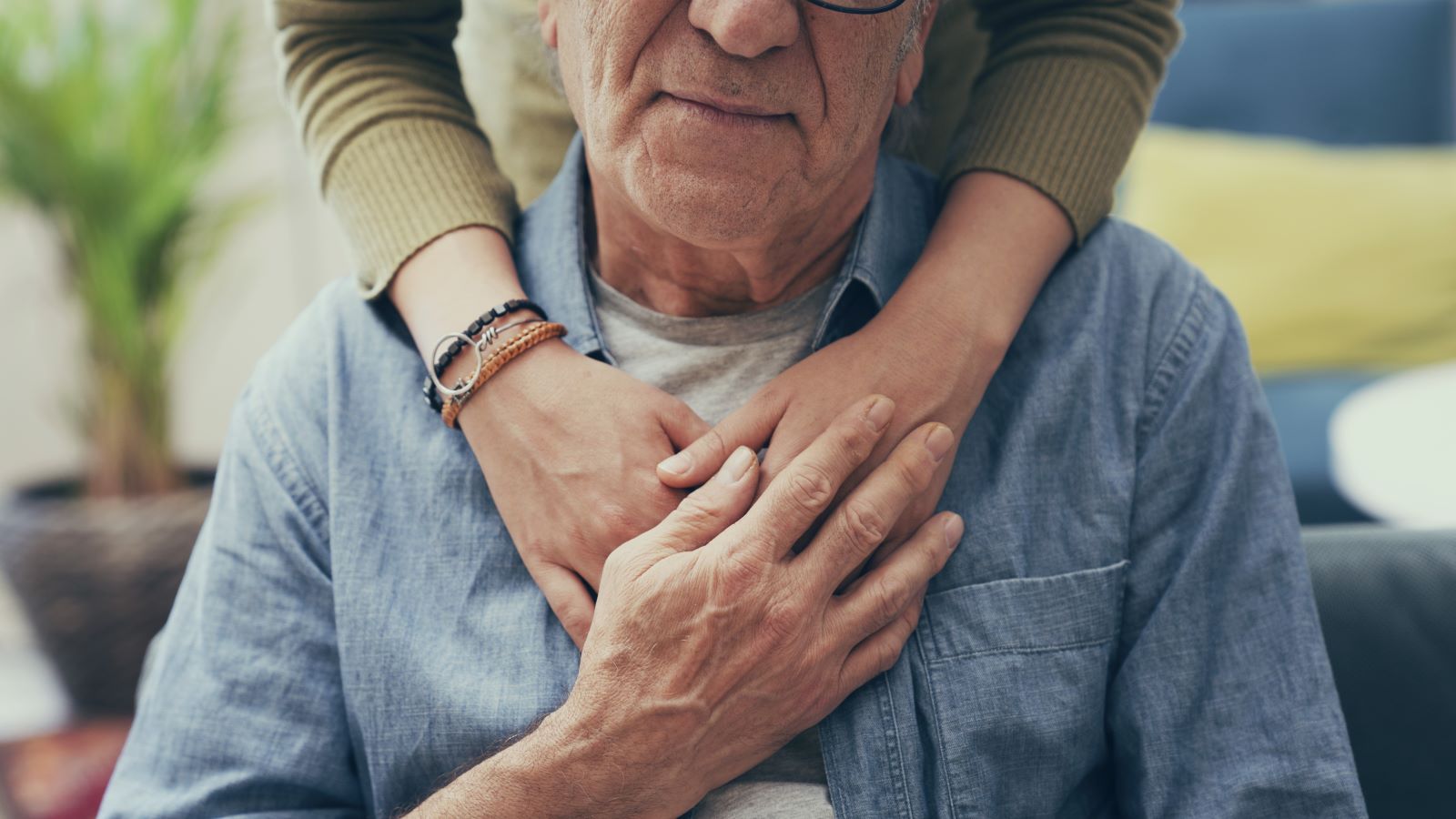<< Back
How and When to Tell Your Loved Ones You Have Cancer

January 16, 2024
A cancer diagnosis is difficult news to process. And then there’s the question of how (and when) to tell your friends and family you have cancer.
“Deciding when and how to share your cancer diagnosis is important. It’s a highly personal and highly variable decision,” says Caitlin McPhelimy, LPC, program manager for Cancer Support Services at Hartford HealthCare’s Cancer Institute.
Whether you hope to keep to keep your diagnosis and treatment private, or share regular updates with loved ones over social media, here are a few things to consider, according to McPhelimy.
Your #1 priority should be you and your needs.
When it comes to cancer diagnoses, it’s important to put yourself and your needs first. Once those are taken care of, you can start to think about your family and friends.
“I like to think of it as an onion – in the middle of the onion is you and your needs. Then your immediate family and closest friends. Then the next layer, and the next. Each of those layers involves a different decision and probably a different amount of information to share,” says McPhelimy.
And if you’re worried about being selfish, don’t be.
“You have to think of it as, ‘what’s good for me?’ You need a level of being selfish, but not in a negative way, in a self-preservation way.”
> Related: Is It Normal to Worry About Cancer Recurrence?
People are going to have questions.
Once they receive the news, your friends and family may have questions. Sometimes, it helps to get more information about your diagnosis and treatment so that you’re prepared to answer them.
“There is a lot of processing,” McPhelimy says. “You have to figure out what it all means. There is logistical stuff. Often people will wait until they have a treatment plan to tell their news, so they can answer all the questions at once.”
Still not sure how to proceed? Try looking at the pros and cons.
There are a lot of pros and cons to sharing your cancer diagnosis. Writing those out can be helpful when deciding how far and wide to share the news, says McPhelimy.
Here are some of the pros:
- Emotional support
- Practical/logistical assistance
- Reduced feelings of isolation
- Access to more information and resources
- Helps spread awareness/advocacy
And a few of the cons:
- Overwhelming outreach of (usually well intentioned) suggestions, advice or sympathy
- Decreased privacy about health/personal life
- Fear of the stigma (though this one comes with the silver lining of ‘destigmatizing’ the disease)